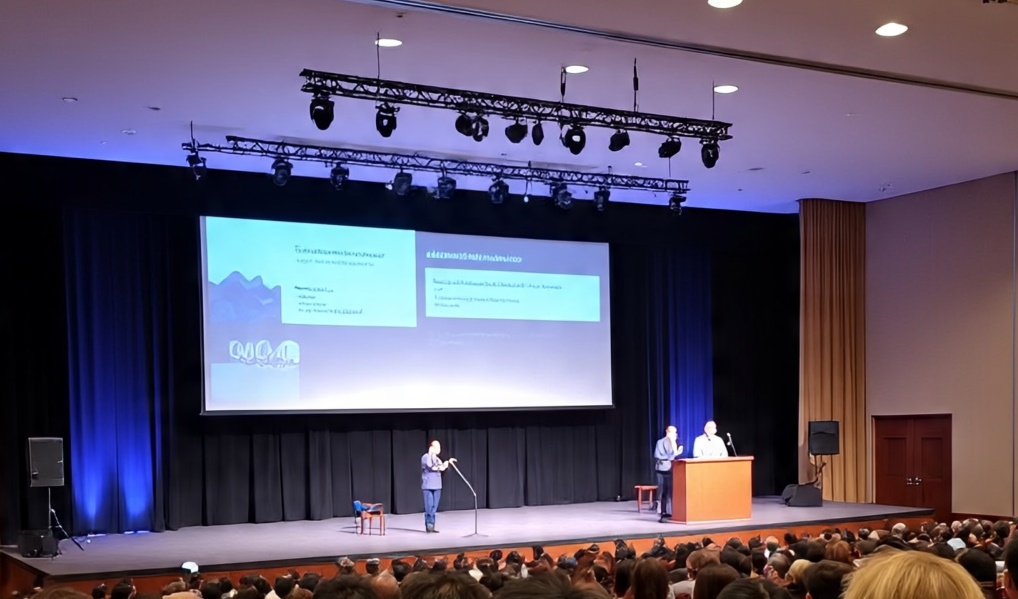The Role of Coaching, Organizational Support, and Knowledge Sharing in Organizational Performance
Keywords:
Coaching, Knowledge Sharing, Organizational Performance, Organizational SupportAbstract
This study aims to examine the role of coaching, organizational support, and knowledge sharing on organizational performance in MSMEs (Micro, Small, and Medium Enterprises) in Lamongan Regency. The research employs a quantitative approach; the location and timeframe of the study were conducted in Lamongan Regency, with a sample consisting of 140 MSME owners. Data analysis was performed using Structural Equation Modeling (SEM). The results generally indicate a negative relationship between coaching and organizational support toward organizational performance. However, the mediating role of knowledge sharing is found to fully mediate the effect of these two variables on organizational performance.
References
Anderson, J. C. (2001). Nurturing customer relationships: Is CRM the answer?. Journal of Marketing Management, 17(1-2), 29-53.
Brandes, P., Dharwadkar, R., & Wheatley, K. K. (2004). Understanding the leadership gap between intention and action. Journal of Management Development, 23(8), 743-760.
Borgen, W. A., & Bansal, P. (2007). Predictors of Career Decision-making Difficulties among Emerging Adults. Journal of Career Development, 34(4), 362-388.
Bolat, T., & Yilmaz, C. (2009). The effects of brand experiences, trust and satisfaction on building brand loyalty; an empirical research on global brands. Procedia-Social and Behavioral Sciences, 1(1), 1118-1126.
Barney, J. (2001). Resource-based theories of competitive advantage: A ten-year retrospective on the resource-based view. Journal of Management, 27(6), 643-650.
Colomo, M. L., & Casado, M. (2006). Strategic knowledge management, innovation and performance. Journal of Business Research, 59(4), 406-414.
Collins, J., & Smith, K. (2006). Knowledge exchange and combination: The role of human resource practices in the performance of high-technology firms. Academy of Management Journal, 49(3), 544-560.
Darroch, J. (2005). Knowledge management, innovation and firm performance. Journal of Knowledge Management, 9(3), 101-115.
Davenport, T. H., & Prusak, L. (1998). Working knowledge: How organizations manage what they know. Harvard Business Press.
Ellinger, A. D., Ellinger, A. E., Yang, B., & Howton, S. W. (2003). The relationship between the learning organization concept and firms' financial performance: An empirical assessment. Human Resource Development Quarterly, 14(3), 365-381.
Eisenberger, R., Fasolo, P., & Davis-LaMastro, V. (1986). Perceived organizational support and employee diligence, commitment, and innovation. Journal of Applied Psychology, 71(3), 500-507.
Eisenberger, R., Huntington, R., Hutchison, S., & Sowa, D. (1990). Perceived organizational support. Journal of Applied Psychology, 75(1), 51-59.
Gibson, J. L. (1988). Organizations: Behavior, structure, processes. McGraw-Hill.
Graen, G. B., Scandura, T. A., & Graen, M. R. (1982). A field experimental test of the moderating effects of growth need strength on productivity. Journal of Applied Psychology, 67(6), 692-697.
Gould, S. J. (1997). Nonoverlapping magisteria. Natural History, 106(2), 16-22.
Gil, I., & Carrillo, P. J. (2013). Online co-creation practices in innovation processes: An exploratory study of Spanish open-innovation communities. Journal of the Knowledge Economy, 4(3), 300-314.
Grant, R. M. (1997). The knowledge-based view of the firm: Implications for management practice. Long Range Planning, 30(3), 450-454.
Hair, J. F., Black, W. C., Babin, B. J., & Anderson, R. E. (2010). Multivariate data analysis: A global perspective. Upper Saddle River, NJ: Pearson Education.
Hermes, N., Renes, S., & Oude Vrielink, M. (2012). Social media and SMEs: A review and research agenda. International Journal of Small Business and Entrepreneurship Research, 1(1), 22-33.
Heslin, P. A., Vandewalle, D., & Latham, G. P. (2006). Keen to help? Managers' implicit person theories and their subsequent employee coaching. Personnel Psychology, 59(4), 871-902.
Lee, G., & Choi, B. (2003). Knowledge management enablers, processes, and organizational performance: An integrative view and empirical examination. Journal of Management Information Systems, 20(1), 179-228.
Maltz, E., Shenhar, A. J., & Reilly, R. R. (2003). Beyond the balanced scorecard: Refining the search for organizational success measures. Long Range Planning, 36(2), 187-204.
Nonaka, I. (2006). Knowledge management and knowledge creation: An essential synergy for innovation. In Handbook of technological innovation (pp. 91-100). Blackwell Publishing Ltd.
Nonaka, I., & Takeuchi, H. (1995). The knowledge-creating company: How Japanese companies create the dynamics of innovation. Oxford University Press.
Olivero, N., Bane, K. D., & Kopelman, R. E. (1997). Executive coaching as a transfer of training tool: Effects on productivity in a public agency. Public Personnel Management, 26(4), 461-469.
Peterson, R. A. (1994). A meta-analysis of Cronbach's coefficient alpha. Journal of Consumer Research, 21(2), 381-391.
Polanyi, M. (1966). The tacit dimension. Doubleday.
Robbins, S. P. (2002). Essentials of organizational behavior. Pearson.
Ricardo, A., & Wade, J. (2001). Corporate performance management. Wiley.
Shang, S. S., & Marlow, P. B. (2005). Performance measurement in SMEs: A proposed framework for SME
Trepanier, S. G. (2017). The mediating role of employee engagement in the relationship between training and development and job satisfaction. International Journal of Training and Development, 21(2), 107-117.
Tippins, M. J., & Sohi, R. S. (2003). IT competency and firm performance: Is organizational learning a missing link?. Strategic Management Journal, 24(8), 745-761.
Wang, Y., & Noe, R. A. (2010). Knowledge sharing: A review and directions for future research. Human Resource Management Review, 20(2), 115-131.
Wang, Y., & Wang, D. (2012). The impact of leadership behaviors on knowledge sharing in China. Journal of Information & Knowledge Management, 11(03), 1250011.
Workman, J. P. (2004). Marketing accountability: Linking marketing actions to financial performance. Journal of Business Research, 57(1), 1-9.




